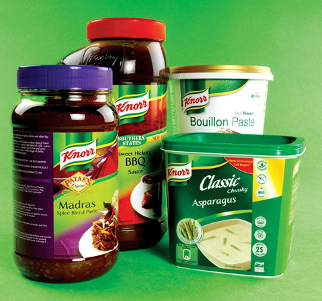Unilever reported that more than 50 percent of all its factories have achieved the goal of sending no waste to landfill in 2012.

This goal was achieved while the company reported annual sales of €51 billion - up from €40 billion when Unilever set out its new vision of doubling the size of its business while reducing its environmental impact and increasing its positive social impact. Unilever has already reached the milestone of 100% of sites sending zero waste to landfill in 18 countries. This achievement is equivalent to removing more than one million household bins of waste every year.
Over 130 Unilever factories across the world, from Costa Rica to Japan, send no non-hazardous waste to landfill, up from 74 at start of the year. Key driver for this achievement is the elimination of waste in the factories. Additionally, waste is reduced, reused, recycled and recovered. Under its Sustainable Living Plan, Unilever announced that by 2020, total waste sent for disposal will be at or below 2008 levels - despite producing significantly higher volumes. Today, Unilever is stretching the original target even further by bringing the 2020 commitment 5 years forward. A total of 252 factories across the world will not send any non-hazardous waste to landfill by end of 2015.
"This is a significant achievement for Unilever as we make progress towards reaching our ambitious sustainability goals," says Tony Dunnage, Unilever eco-efficiency manager. "It's a great example of how we are putting our sustainability strategy into action - by decoupling the growth of our business from its environmental impact. Today's landmark demonstrates how our factories are more environmentally responsible, which is helping us to save money to invest in our business. Having over 130 sites not sending waste to landfill equates to a cost saving of almost €70 million, all achieved without the need for capital expenditure."
Unilever is implementing best practices from all over the world, actively using the global supply chain network, to create more environmentally responsible factories. By using the "design once and deploy everywhere" philosophy, the company is driving a sustainable model that is good for the environment and saves costs. Every new factory will produce 50% less waste than 5 years ago and will not send any non-hazardous waste to landfill by design.
Where reduction of waste is not sufficient it will reuse, recover or recycle waste to reach zero-waste to landfill. For example, in Russia Unilever collects a few tons of perforated outer-tea bags annually and this is sold in pet shops as animal bedding, used for wallpaper, etc. In Hefei (China) Unilever reduced plastics to wrap boxes on pallets by replacing it with reusable elastic fabrics.





